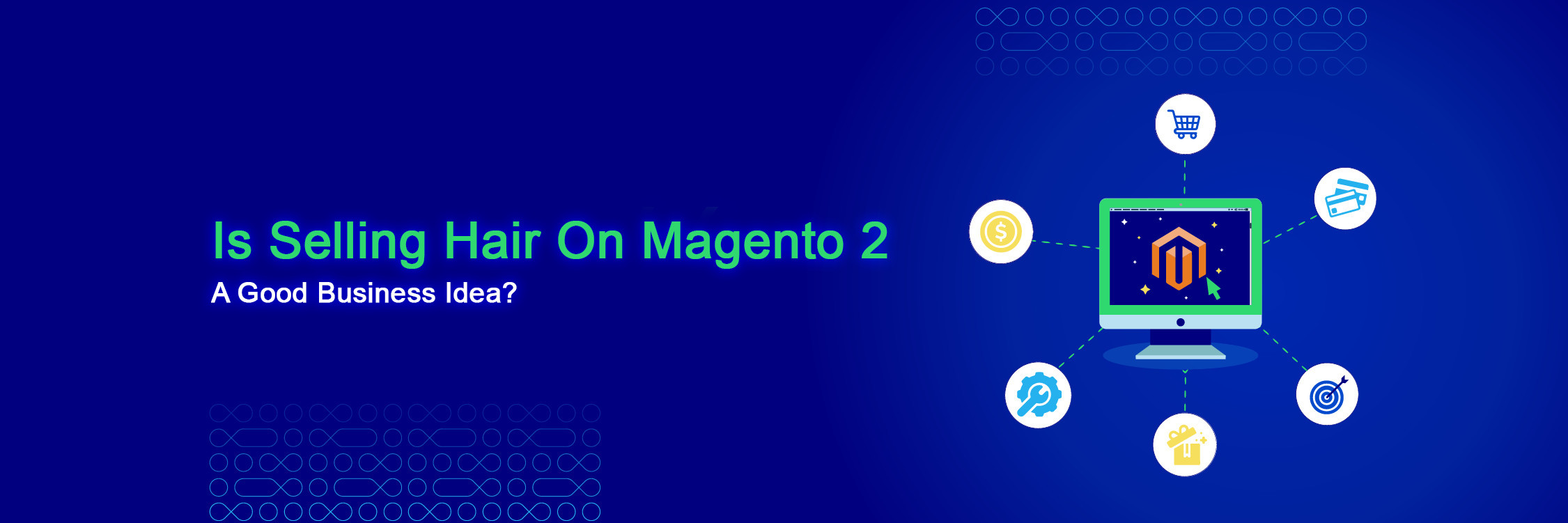6 Best eCommerce CMS for Online Businesses in 2023
With a big catalog of 234+ extensions for your online store
The growth of e-business is increasing like never before and it is expected to boom in upcoming years. To build an online website, considering an eCommerce CMS is a wise choice. From the article, we introduce the most outstanding platforms that are used popularly. Building a strong foundation from the beginning will help you boost sales and hit business success quickly.
No time to read? Here is our top 3 picks:
Featured eCommerce CMS in 2023
Our experts manually reviewed and picked the most popular ecommerce CMS for you
BigCommerce
Everything your business needs for growth
- Best for growing businesses and enterprises
- A great SEO-friendly e-commerce CMS
- Built-in blog CMS
- Powerful features
- Excellent management tools
- Flexible and customizable
Shopify
The all-in-one commerce platform. Trusted by millions of merchants worldwide
- The most easy-to-use e-commerce CMS
- Suitable for both small and large businesses of any kind
- Built-in blog CMS
- Manage multiple sales channels in one place, both online and offline
- A complete platform for commerce with tons of built-in tools
- Fast, simple, scalable, and secure
Magento
A commerce platform that’s endlessly flexible, extensible, and scalable
- Suitable for medium and large businesses
- Manage multiple channels, both B2B and B2C, in one place
- Complex for beginners, but that’s what makes it endlessly customizable (advanced coding knowledge required)
- Huge marketplace with thousands of extensions
Table of Contents
- What is CMS?
- Main features of CMS
- Essential benefits of CMS
- Top 6 eCommerce CMS for online stores
- Final thoughts

What is CMS?
CMS is an abbreviation of the content management system. The primary responsibilities of CMS are to manage the generation and adjustment of digital content. The system assists store owners to place and manage the content easily. The digital content includes images, videos, documents, marketing materials, etc.
Main features of CMS
Content management systems offer some outstanding features below:
- Wizards installation and upgrade
- SEO
- Template customization for changing designs
- Integration of audit logs
- Collaboration platform
- Modularity and extensibility
- Reduce the need for code from scratch
- Version management
- User and group functionality
Essential benefits of CMS

There are some vital benefits of using the content management system to power your business website:
- For any business sizes: CMS is considered an excellent eCommerce solution for any business need. The system brings flexibility, simplicity, and scalability to all business sizes (small businesses, mid-market, and enterprises). It enables store owners to organize and keep track of the content on their websites with ease.
- Friendly with users: The content management system is a user-friendly program that enables admins to upload any file and data in the blink of an eye. CMS requires no complex process with the aim of content optimization.
- Smooth and quick integration: CMS brings a simple and fast process of content integration through your website. CMS sites are integrated with dynamic web content that supports information to be updated or published as required.
- Accessibility from anywhere: Because the interface is usually browser-based, a CMS can be accessed from anywhere by anyone. The only thing administrators need to do is to use a computing device connected to the Internet. In the hustle and bustle of daily life, the outstanding feature of CMS enables store owners to do remote work, surpassing their goals from wherever they go.
In case you want to transfer your Magento 1 site to Magento 2 site, you can continue your research with Magento 2 Data Migration
Top 6 eCommerce CMS for online stores
Shopify
Shopify is a flexible e-commerce platform with tons of stand-out features. The platform is trusted by millions of businesses worldwide, generating billions of dollars in gross merchandise volume.
Shopify is regarded as an all-in-one eCommerce platform. Merchants can set up their online stores, manage their products, and handle all orders in a single dashboard. Shopify also allows you to manage multiple sell channels, including your own store, online marketplaces like Amazon and eBay, social media, and retail locations.
The platform offers blog CMS by default - which is great if you want to drive traffic to your store with SEO.
Features
- Easily customize storefront with templates’ intuitive settings
- Get full access to the HTML and CSS of your website
- Enable mobile commerce shopping cart
- Use your own domain name
- Access to a full-featured content management system
- Use Shopify app to manage your store on the go
- Fulfill multiple orders with only one click
- Enable gift cards, discounts, social media integration
- Enable Facebook selling
- Import/export products via CSV files
Pros
- Shopify is considered to be one of the most easy-to-use platforms for eCommerce businesses
- Provide several beautiful, professional, mobile-friendly themes
- Empower users with many apps covering a wide range of aspects, including marketing, accounting, inventory management, shipping, shipping, and more
- Shopify offers 24/7 support
Cons
- Compared to other self-hosted platforms, Shopify is not flexible enough to offer more functionality for your store
- Many Shopify themes request payments
- You might need an expert’s help to get extensive theme customization
- Accelerated Mobile Pages (AMP) feature is helpful, but it only available in a paid app
Pricing
- Basic Shopify (for new businesses): $29/month
- Shopify (for growing businesses): $79/month
- Advanced Shopify (advanced features for scaling your business): $299/month
Shopify also offers 2 more plans called “Shopify Lite” and “Shopify Plus”. Check out Shopify’s full pricing and features here.
So who should use Shopify?
Shopify is a great option for those who want to start an e-commerce website in the fastest and easiest way possible. The platform is highly versatile, and it supports a wide range of businesses. Even if you’re new to website development or have a start-up with a business idea only, Shopify is where you can build a well-functioned website without hassles.
Magento
Magento is famous as the leading open-source eCommerce platform. The system is developed in PHP that enables store owners to build their online businesses with ease. The platform supports all business sizes and meets business needs for B2B, Omnichannel, Mobile Commerce, etc. Besides, Magento allows integrating with multiple extensions from the third parties, creating distinct digital retail experiences.
The world eyewitnesses over $100 billion in gross merchandise volume handled annually by Magento. Magento has built a thriving community with more than 300,000 Magento developers on the globe. Furthermore, it offers the large Magento Marketplace where multiple extensions are available to download. If you own an online shop that sells good, Magento is surely worth checking out.
Mageplaza is proud to be a partner of Magento (Magento 2 Premier extension builder) and one of the leading extensions providers for the Magento 2 platform. Experience tons of Magento 2 extensions here.
Features
- Simple drag and drop solution for eCommerce website builders
- Personalize content and promotions
- Easy to drive engagement and sales with relevant product recommendations
- Create a personalized customer shopping experience
- Easy to create, preview and schedule content
- Manage stores through an intuitive and user-friendly interface
- Use built-in themes responsive and SEO-optimized to any device
- Integrate with B2B functionality
- Update and manage data from multiple sources in one place
- Support multi-channel marketing
- Intelligent inventory management and order management
Pros
- Magento is a powerful and feature-rich platform
- Magento is SEO-friendly and fast-loading
- Users can customize almost every functionality on a Magento store
- Store owners can get all information, including orders, customers, and products with many advanced reporting features
- Magento offers solutions to scale with clients’ businesses
- Magento has a big community with 360,000 forum members. You can get advice, FAQs, documents, or anything essential to understand this platform.
Cons
- Magento is complicated, so it’s quite difficult for non-technical people to use
- Magento’s plans are expensive compared to other platforms
- Magento websites need hostings
Pricing: Starting price: $1988/month
So who should use Magento?
It’s undoubtedly that Magento is suitable for large-scale online business. If you’re running multiple storefronts and want to manage all of them through a single backend, Magento is the best choice for you.
BigCommerce
Among numerous eCommerce software suppliers, BigCommerce is a prominent star for you to start an online business. With multiple built-in features and customization options, BigCommerce has attracted over 55,000 merchants of all sizes. Specifically, the famous brands such as Toyota, Natori, and Martha Stewart have trusted and used this platform for years. BigCommerce is a powerful platform to boost large and fast-growing businesses into the big leagues.
In addition to providing extreme scalability for e-stores, BigCommerce offers advanced SEO and multi-channel integration. Store owners quickly raise their brand awareness across social channels. They also have the chance to access millions of potential customers worldwide. In case you need a comprehensive review of Bigcommerce, we’ve got it right here for you!
Features
- Easily to create and edit pages with drag and drop solutions
- Easy checkout customization
- Make your site mobile-optimized
- WordPress integration
- Support over 70 native discount and promotions
- Speed up your site loading with Google Cloud Platform infrastructure, Google AMP, and Akamai Image Manager
- Product recommendations
- Sell on multi-channels
- Enable B2B functionality
- Support cross-border fulfillment
- Sell in multiple currencies
Click here to learn more about BigCommerce’s features
Pros
- Ease of use
- Fast-loading eCommerce site
- Wide variety of theme options
- Work well for SEO and organic search results
- Helpful customer service
- Integrate out of the box with multiple third-party extensions or apps
- Built-in blog
- Easy to customize fields
- Unlimited staff accounts
Cons
- BigCommerce’s pricing is a bit more expensive than other platforms
- Anual online sales are limited, and if you need to upgrade to a more costly monthly plan to get more
- The built-in blog does not facilitate RSS feeds
Pricing
- Standard: $29/month
- Plus: $79.95/month
- Pro: $299.95/month
- Enterprise: Request for price
Check out BigCommerce’s pricing plans here
So who should use BigCommerce?
BigCommerce is good for both small and large businesses. If your big online business is growing, BigCommerce offers the scalability to grow with you. For small businesses, BigCommerce has enough impressive features to optimized and scale up the store without hurting the limited budget of small business owners.
WooCommerce
WooCommerce is one of the major eCommerce platforms today. Following the statistic of Barn2.co.uk, the market share for WooCommerce in 2021 is 22% of the top 1 million sites using eCommerce technologies. The result shows the tremendous growth of WooCommerce in recent years.
WooCommerce supports to transform a WordPress website into an e-store. The platform has attracted a large number of users as it provides numerous extensions and themes for free. The notable advantage of these plugins is they can enable various features to the basic WooCommerce in a single click. Also, you are free to get support from WordPress’ massive user community.
See the comparison between Magento 2 and WooCommerce to find the best platform for your e-store.
Features
- Simple store set-up
- Flexible and secure payments
- Accept various major credit card, payment gateways, and support deposits
- Easy to manage order with a modern and neat interface
- Provide mobile app for iOS and Android
- Provide a huge collection of free and paid extensions covering from store enhancements, marketing integrations, multichannel to point of sale
- Unlimited customization
- Easy to manage product categories
Pros
- Give multiple free features to the basic WooCommerce software
- WooCommerce is a free WordPress plugin
- WooCommerce is simple and easy to use compared to other complicated CMS solutions
- Easy to customize themes
- WooCommerce websites work fast with essential features needed in a specific time
- Unlimited products
- Provide a large number of extensions
- SEO-friendly
- Full control of the content
- Familiar with WordPress users
Cons
- Request the store admin thorough knowledge about both WordPress and WooCommerce
- The installation of some extensions is not free
- Users need to pay for hosting and domain alone
- WooCommerce plugin sometimes can’t adapt to frequent updates of WordPress
- The platform only works with WordPress themes
Pricing: Downloading and installing the plugin is free of cost
So who should use WooCommerce?
With the ease of use along with powerful features and flexibility, WooCommerce is a great platform for new eCommerce merchants. Especially, if you’re already familiar with WordPress, this platform will help you take advantage of all your existing knowledge about WordPress to create a robust store. And if you can afford self hosting, go ahead with WooCommerce.
OpenCart
OpenCart is well known because of the open-source and easy-to-use eCommerce platform. It is unnecessary to pour a massive amount of money to develop your new store. Also, OpenCart brings e-business community a useful and customizable plugin without monthly fees. All you need are to install, choose the template, and add products.
OpenCart offers over 14,000 extensions and themes to e-businesses of any size. Moreover, it integrates with more than 20 payment gateways and over eight shipping methods. In short, even coming with a small budget, your store still thrives on the OpenCart platform.
Features
- Get a full overview of total orders, sales, customers, sales analytics via administrator dashboard
- Separate access for users and user groups
- Manage multiple stores from one admin interface
- Add different product variables
- Provide an inbuilt Affiliate system
- Offer discounts, coupons, specials
- Allow setting up your own back-ups and restorations
Pros
- OpenCart 3.0.3.3 is free
- An ideal option for clients who want specific shopping cart functionalities
- Flexible to work with various payment processors and payment gateways
- Easy and fast to set up and configure a new simple shopping cart website
- User-friendly administration for non-tech savvy
Cons
- OpenCart document is not the easiest compared to other platforms
- OpenCart wholesale functionality is not good enough
- The platform is quite buggy and security-lacked
- Not an ideal choice for larger eCommerce stores, outdated themes/templates
- Some developer skill needed sometimes as an admin
Pricing
- Free
- Paid support from OpenCart’s approved partners
So who should use OpenCart?
Opencart is quite difficult for beginners or non-technical people to customize the site. Hence, if you want to build a simple website and can afford to hire a developer, you can go with OpenCart.
PrestaShop
PrestaShop is a freemium, open-source eCommerce solution to online merchants. According to the PrestaShop statistic, over 300,000 e-businesses worldwide using its technology. The platform is used commonly as stores install and customize the software with ease. You are free to select a fully-hosted or self-hosted version. Hence, you can determine your level of technical control.
Aside from the built-in functionality of PrestaShop, business owners can extend the platform by using plugins and themes. However, PrestaShop consists of all stores need; hence, it is not essential to equip any additional extensions. With the aim to develop world-class eCommerce software through open-source innovation, PrestaShop is an ideal platform for you to achieve business success.
Features
- Quickly create products and packs of products with nice menu and layouts
- Allow customers to upload files to sell customizable products
- Add products with variants from list of attributes
- Limit the quantity to purchase for some products and set out-of-stock messages
- Easy to create product categories and subcategories
- Customize your store with ease: configure payment, shipping methods, display of products
- Configure the checkout page
Pros
- Easy to install and configure
- PrestaShop open-source shopping cart is free
- PrestaShop’s design is user-friendly for non-technical users
- Easy to customize features
- Support secured and reliable payment gateways like Paypal and Google Checkout
Cons
- PrestaShop is suitable for small and medium store due to its limited scalability
- PrestaShop has no official built-in support team, instead of their partners
- The design of PrestaShop is not ideal for large-scale store
- Addons are a bit expensive
Pricing: Free
So who should use PrestaShop?
PrestaShop is an ideal option for new online merchants, even without any existing technical experience due to its simplicity, user-friendly interface, and functionality. However, the fact that Prestashop’s features for online stores are limited makes it a default best fit for small and medium-sized businesses.
Pixpa
Pixpa is an all-in-one website builder platform for business owners, creative professionals and freelancers. Pixpa can help you create feature-rich, professional websites complete with an online store, e-commerce galleries, blogging platform and more, without touching a single line of code.
Pixpa offers a wide range of features including product and inventory management tools, abandoned cart recovery, shipping and discount management, built-in marketing and SEO tools and more. What sets Pixpa truly apart from the competition is the stellar customer support with an average response time of under 3 minutes.
Features
- Easy to use, no-code platform allows you to build a feature-rich e-commerce website without touching a single line of code.
- Wide range of professional, mobile-optimized and responsive e-commerce website templates.
- Create a full-featured online store to sell products, services or digital downloads. E-commerce tools include product and inventory management, shipping, taxes and discount management, abandoned cart recovery tools and more.
- E-commerce galleries can be used to sell prints or digital downloads. Pixpa also has options for more traditional online stores..
- Extensive and integrated SEO and marketing features including pop-ups and announcements.
Pros
- Affordable pricing. Pixpa’s pricing plans are among the most inexpensive on the market. Offers the option for using custom CSS and HTML code for advanced customization.
- Pixpa charges zero commissions on sales made through your website.
- 24x7 customer support with a response time of under 3 minutes.
- Free one-time, website set-up service with Expert and Business tier pricing plans
- Free SSL security on all websites.
Cons
- Custom domain names must be purchased from a third party. No built-in options for purchasing a custom domain.
- Pixpa is a paid service, it is not open source and does not offer a freemium model or free plans.
Pricing:
- Light - $3 per month
- Personal - $7 per month
- Expert - $10 per month
- Business - $16 per month
So who should use Pixpa? Pixpa is perfect for businesses that want a versatile e-commerce website to sell products, services or digital content. It is also a great business solution for creative professionals like artists, photographers, designers who would like to sell images as prints or digital goods through their website. If you want an easy to use and affordable solution for your e-commerce needs then Pixpa would be a great choice for you.
Final thoughts
To make full use of the robust growth of eCommerce, online stores need careful preparation for their performance in the extreme marketplace. Top 6 eCommerce CMS is introduced to help you find the most suitable platform. It is hard to say what platform is the best because your business needs will determine which feature benefit you the most. Just decide the CMS that can lay a firm foundation for your online store and help you achieve business goals.
& Maintenance Services
Make sure your M2 store is not only in good shape but also thriving with a professional team yet at an affordable price.
Get StartedNew Posts

May 2023
People also searched for
- ecommerce cms
- best cms for ecommerce
- best ecommerce cms
- best ecommerce cms 2021
- cms for ecommerce
- eshop cms
- shop cms
- top ecommerce cms
- best eshop cms
- best cms ecommerce
- online shop cms
- cms store
- best webshop cms
- cms e commerce
- ecommerce cms platforms
- best cms for ecommerce website
- best cms for online store
- free ecommerce cms
- online shopping cms
- the best cms for ecommerce
- shopping cms
- cms online shop
- most popular ecommerce cms
- cms for online store
- webshop cms
- cms for e-commerce
- simple ecommerce cms
- cms for ecommerce website
- best e-commerce cms
- ecommerce cms comparison
- cms online store
- ecommerce content management system
- cms and ecommerce platform
- top cms for ecommerce
- best online shop cms
- ecommerce cms systems
- best ecommerce cms platform
- cms and ecommerce
- best content management system for ecommerce
- best cms for webshop
- best cms for online shop
- cms with ecommerce
- best e commerce cms
- which cms is best for ecommerce site
- content management system ecommerce
- what is the best cms for ecommerce
- 2.2.x, 2.3.x, 2.4.x
Stay in the know
Get special offers on the latest news from Mageplaza.
Earn $10 in reward now!







